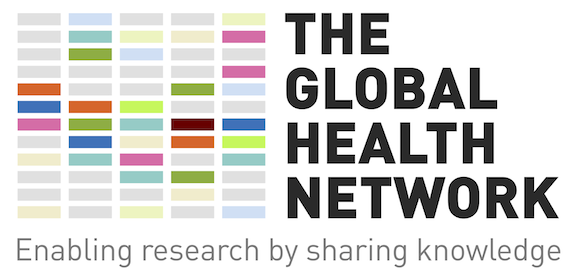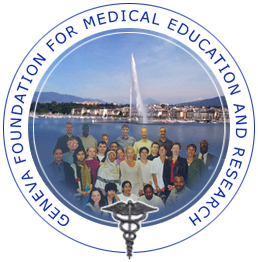COVID-19 in pregnancy, delivery and the neonatal period
An interactive e-Learning course for health professionals
INTERCOVID
COVID-19 is a global emergency. Its effects on pregnancy and the newborn include the direct spread of disease to pregnant women and their babies and indirectly, the reduction in access to essential maternal and newborn healthcare services resulting in maternal and newborn morbidity and mortality.
Although it was generally believed that pregnant women with COVID-19 were at similar risk to the general population, the available data were limited and mainly from small case series without controls, which could not answer fundamental questions relating to the effects of the disease in pregnancy. In order to provide women, families, health care providers and policymakers with prompt, much needed high-quality evidence regarding the effects of COVID-19 on maternal, fetal and neonatal outcomes, INTERCOVID conducted a large, multi-national, prospective cohort study with the aim of assessing the effect of COVID-19 in pregnancy on maternal, fetal and neonatal outcomes worldwide. You can read the results here (Maternal and Neonatal Morbidity and Mortality Among Pregnant Women With and Without COVID-19 Infection: The INTERCOVID Multinational Cohort Study). The information from the study will help to optimise maternal and newborn care, inform decision-making about the allocation of resources, and guide the process toward social adaptation.
The study is coordinated by the INTERGROWTH-21st Team at the University of Oxford.
COVID-19 in pregnancy, delivery and the neonatal period, interactive e-Learning course
About the development of this course
As a complement to the study, the development of this course was motivated by the commitment of the INTERGROWTH-21st Consortium to improve maternal and perinatal health globally. This training course is a practical interactive package targeted at health professionals caring for pregnant women and their newborns.
The aim of the course is to provide healthcare providers with evidence-based recommendations for disease prevention and management of pregnant women and their babies during the COVID-19 pandemic and thereby lessen the adverse maternal and newborn outcomes from the disease.
The content of this course is based on the information available as at April 2021. Any new developments that require updating will be done periodically.
How to get the most from the course
Thank you for taking this course. We hope you enjoy it and find it useful. You are required to make an account, using your email and a password, with the Global Health Network in order to access the course and take the quizzes. We have integrated a number of knowledge tests within the course to ensure interactive involvement from each participant. Follow the instructions on the screen and click all the relevant links so you do not miss out on anything!
At the end of the course you will find a link to key documents and articles if you click on the reference button.
The last part of the course is the knowledge assessment “Final Quiz”. You are invited to complete the final quiz. The participants who correctly answer at least 80% of the multiple choice questions are entitled to a course certificate from the Nuffield Department of Women’s & Reproductive Health, The Global Health Network and the Geneva Foundation for Medical Education and Research. For any further issues please visit our FAQs page.
Course contents
COVID-19 in pregnancy, delivery and the neonatal period |
Quiz* |
*Certificates are only available once a minimum of 80% is achieved in the final quz for the module.
Your feedback is greatly appreciated; please take a couple of minutes to tell us your thoughts on this course:
Course References
Partners:
Oxford Maternal & Perinatal Health Institute (OMPHI)
The Global Health Network (TGHN)
Geneva Foundation for Medical Education and Research (GFMER)
Advisory group
José Villar, MD, MPH, MSc, FRCOG
Professor of Perinatal Medicine, Nuffield Department of Women’s & Reproductive Health, University of Oxford, UK
Aldo Campana, MD
Emeritus Professor, Obstetrics and Gynaecology, Faculty of Medicine, University of Geneva / Director, Geneva Foundation for Medical Education and Research, Switzerland
Aris Papageorghiou, MRCOG
Professor of Fetal Medicine, Nuffield Department of Women’s & Reproductive Health, University of Oxford, UK Clinical Research Director, OMPHI, Green Templeton College, University of Oxford
Ramachandran Thiruvengadam, MD
Translational Health Science and Technology Institute, Faridabad, India
Irene Cetin, MD,
Ospedale Vittore Buzzi Children's Hospital, Department of BioMedical and Clinical Sciences, University of Milan, Milan, Italy.
Federico Prefumo, PhD,
Division of Obstetrics and Gynecology, ASST Spedali Civili di Brescia, and Department of Clinical and Experimental Sciences, University of Brescia, Brescia, Italy.
Laurent Salomon MD,
Hôpital Universitaire Necker-Enfants Malades, AP-HP, Université de Paris, Paris, France.
Jim G Thornton,MD
Division of Child Health, Obstetrics and Gynaecology, University of Nottingham, Nottingham, UK
Editorial team
Raqibat Idris, MBBS, DO, MPH
Technical Officer, Geneva Foundation for Medical Education and Research, Switzerland
Adele Winsey PhD
Nuffield Department of Women’s & Reproductive Health, University of Oxford, UK
Application developers
Lauren Whelan
Training Officer, The Global Health Network Centre for Tropical Medicine & Global Health, University of Oxford, UK
Kehkashan Shah
Training Assistant, The Global Health Network Centre for Tropical Medicine & Global Health, University of Oxford, UK
Funding
The development of the course is funded by the Covid-19 Research Response Fund from the University of Oxford (Ref 0009083)



